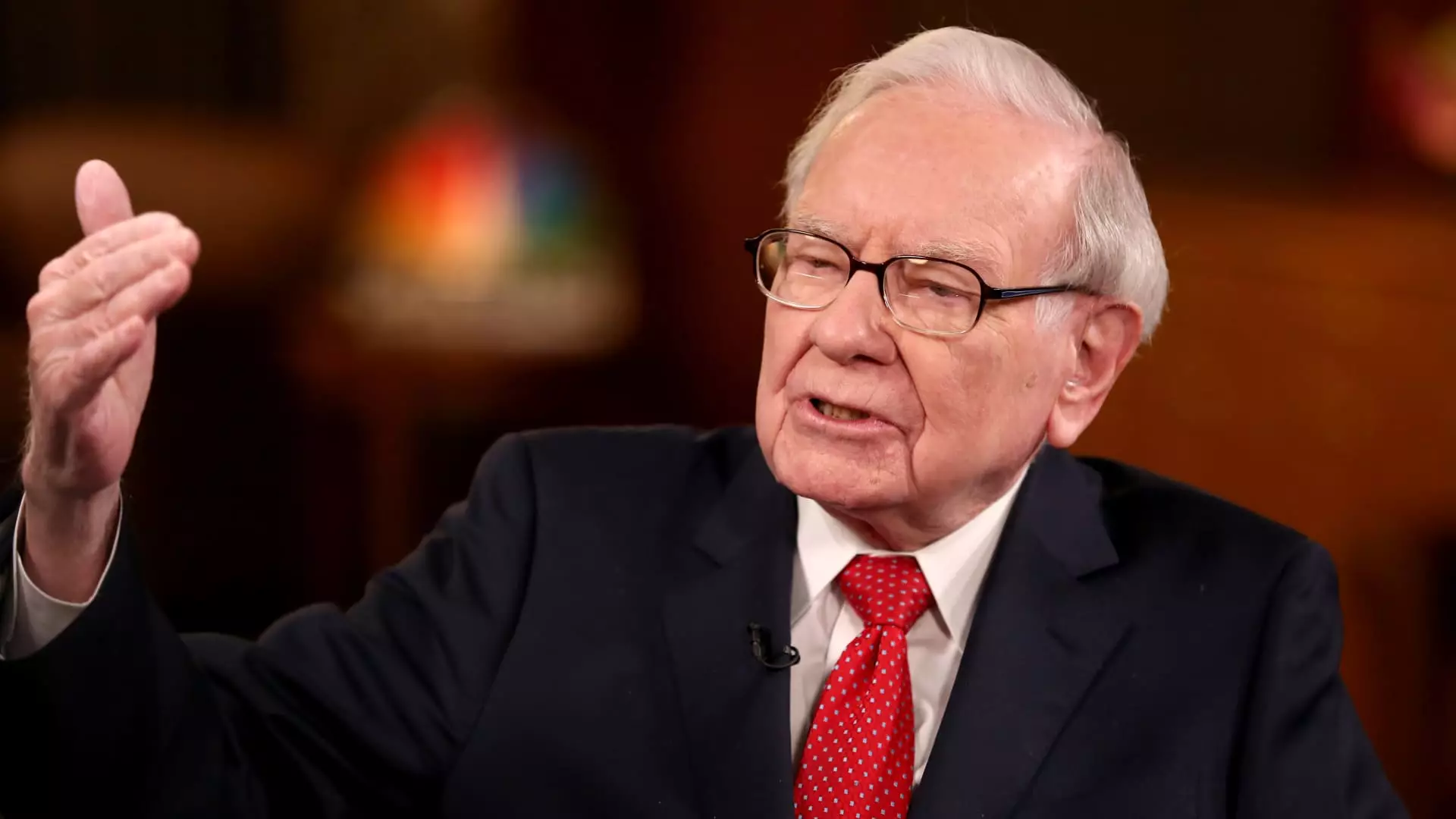In an age of rapid information exchange, the spread of misinformation has become alarmingly common, threatening to shape public opinion and political discourse in dangerous ways. The recent incident involving President Donald Trump and Warren Buffett serves as a vivid example of this phenomenon. Trump shared a sensational video that falsely attributed to Buffett several claims endorsing the president’s controversial policy decisions, particularly around the stock market. This not only highlights the precarious nature of information on social media but also reflects a troubling trend where influential figures are falsely connected to strategies they never endorsed.
The inherent danger here is not just the spread of falsehoods but the profound impact it has on market perception, public policy, and overall economic stability. By linking Buffett to unfounded claims, the narrative promotes the idea that even financial titans endorse reckless political behaviors, which in reality, could lead to chaos, as Buffett himself recognized in previous comments about tariffs and trade wars. Such misinformation can ripple through the markets, affecting not just the wealthy but ordinary citizens whose fortunes hinge on economic policies.
Buffett’s Diplomatic Dismissal
Warren Buffett’s response—or lack thereof—to these surreal claims reflects a strategic and measured approach that stands out amid the frantic noise of social media. Rather than engaging in a counter-rally against Trump’s assertions, Buffett’s Berkshire Hathaway released a clear statement denying any comments attributed to him. His intent seems focused on quelling the storm of misinformation, reinforcing the notion that credibility and truth should take precedence over sensationalism.
Buffett’s withholding of commentary on economic matters until the upcoming Berkshire annual meeting also reinforces his position as a prudent investor instead of a partisan player. This restraint speaks volumes about his philosophy; it’s not about the immediate gains of social media likes or shares but the long-term integrity of the economic landscape he has navigated for decades. In an environment where many believe they must react instantaneously, Buffett chooses careful deliberation.
The Economic Consequences of Partisan Politics
What makes this episode especially concerning is the larger backdrop of economic partisanship—an issue that both Democrats and Republicans have engaged in over the years. Trump’s branding of Buffett’s opinions without consent could lead to significant misinterpretation by the public, ultimately detracting from valuable discourse about actual economic decisions. During Trump’s first term, Buffett raised alarms over trade conflicts, stating that aggressive moves could have dire global consequences. By distorting this history and falsely aligning Buffett with such provocations, a misguided narrative is formed that oversimplifies and stifles meaningful dialogue.
This incident exemplifies how economic discussions can be manipulated for political gain rather than fostering genuine understanding. Policies that may not be as beneficial as they are presented are often marketed through media machinations that obscure their potential fallout. It’s alarming to consider that misinformation has the power to gather momentum, leading the public away from well-informed opinions and towards a realm of fear and uncertainty fueled by half-truths.
The Long Shadow of Misinformation
For Buffett, who has built his reputation on long-term relationships and strategic investments, the potential fallout from false associations cannot be overlooked. If his name is tied to notions he has explicitly rejected, it not only undermines his credibility but also affects public trust in the financial system itself. And as history has shown, misplaced trust can lead to market turbulence—a scenario that economists and investors alike work diligently to avoid.
When public figures endorse inaccurate narratives, this creates a precedent where policy decisions can be undermined by baseless claims. The dangers posed by a ruler who uses misinformation as a tool for political maneuvering exemplify the ongoing struggle for a democratic society driven by fact-based discourse rather than hyperbole and deceit.
Ultimately, the way Buffett navigates these treacherous waters will heavily influence perceptions among investors and decision-makers. His calculated responses could inspire a return to valuing accuracy over drama, which is vitally necessary in a world increasingly governed by fleeting social media trends. An attentive approach to misinformation, as Buffett has exemplified, will define the credibility of economic discourse in the face of rampant political theater.

